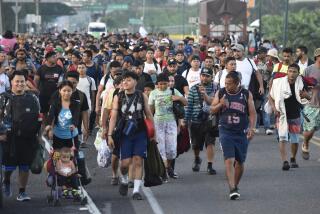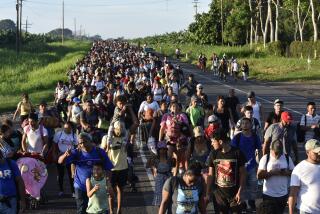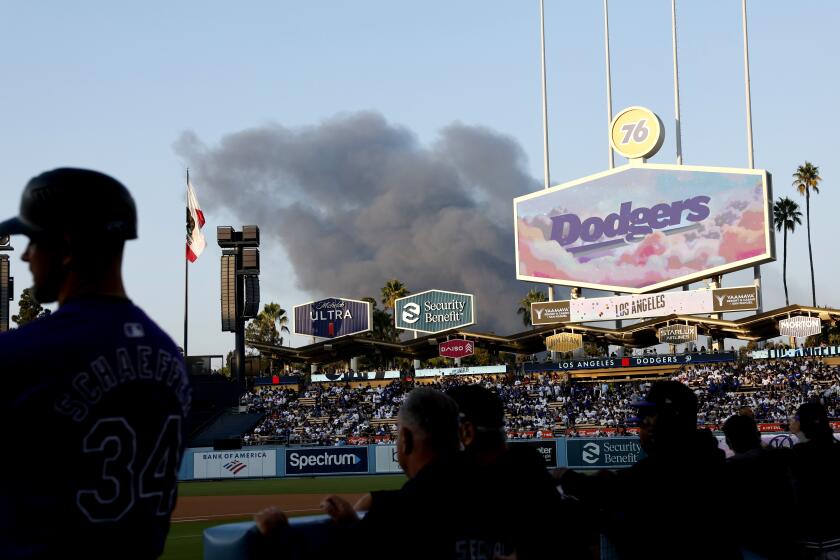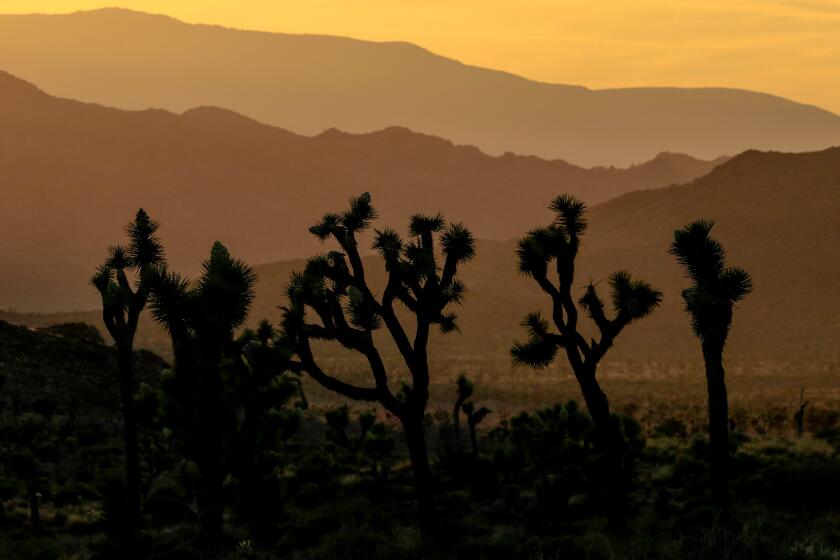Migrant caravan turned away at U.S. border, likely faces long wait in Mexico
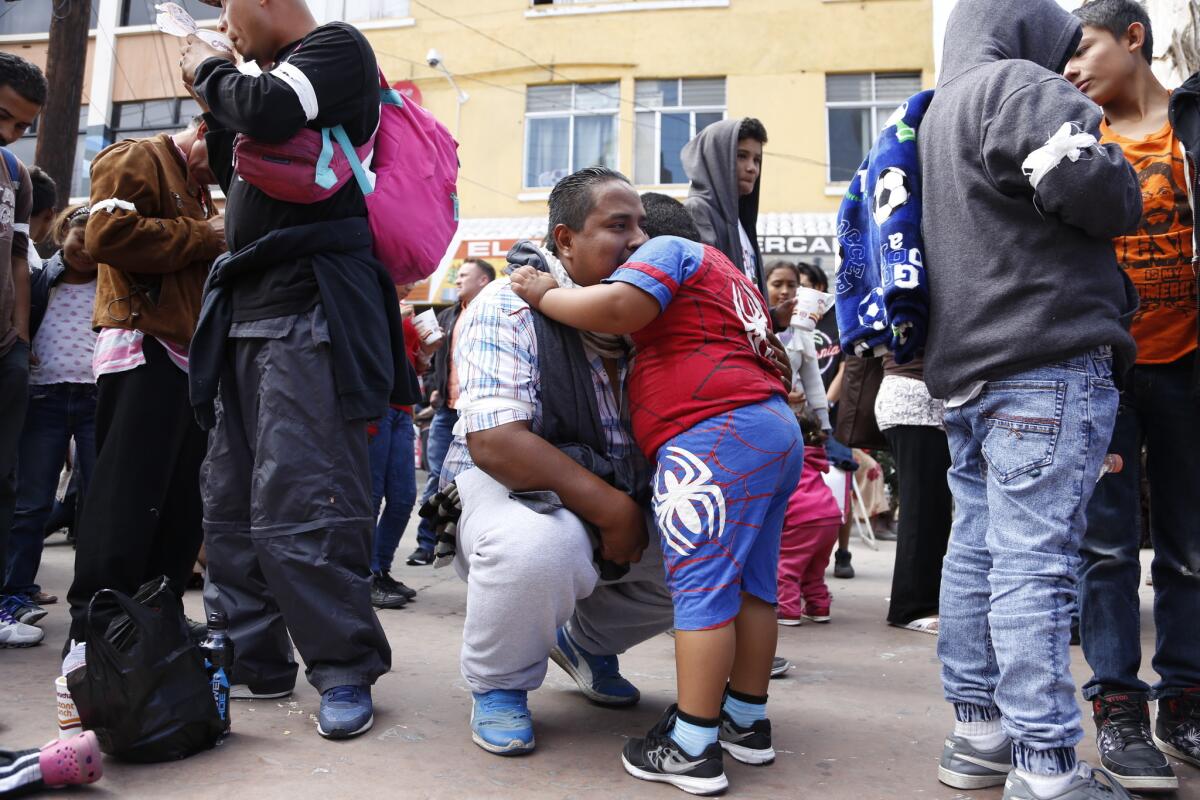
After 35 days of traveling through Mexico, a group of Central American migrants prepared to cross to the United States on Sunday and request asylum. But one thing quickly became clear: As one leg of their journey had concluded, a new struggle was just beginning.
While some 200 members of the Pueblo Sin Fronteras Caravan went over final details of their asylum petitions in Tijuana, U.S authorities announced Sunday afternoon that they had “reached capacity” at the San Ysidro Port of Entry for processing persons “without appropriate entry documentation” — a status that would apply to all caravan members.
Kevin McAleenan, commissioner of U.S. Customs and Border Protection, said in a statement that “depending upon port circumstances at the time of arrival, those individuals may need to wait in Mexico as CBP officers work to process those already within our facilities.”
As they made their way across Mexico, the caravan’s members have come under a spotlight in recent weeks following a series of tweets by President Trump, who invoked the North American Free Trade Agreement and the Deferred Action for Childhood Arrivals Program as he accused Mexico of doing nothing to stop their journey to the border.
Undeterred by the president and the CBP announcement, the first group of 50 Caravan members walked into the port’s PedWest entrance about 4:30 p.m. on Sunday, waving farewell, as activists and fellow caravan members cheered them on. Most were women and children.
But several hours later, members of the group had yet to enter the U.S. facility for processing, according to a source who requested anonymity. As darkness fell, caravan leaders made no announcements as to their fate.
The Central Americans would not be the first group to be forced to wait in Mexico. When thousands of Haitians sought entry at San Ysidro in 2016, CBP worked with Mexican officials to accept limited numbers each day so as not to overwhelm the port’s processing capacity.
CBP officials in recent days have said that the agency has the capacity to detain as many as 300 people at the San Ysidro Port of Entry. A representative of Amnesty International observing the process, Madeleine Penman, said “if the U.S. government decides not to receive these people who are presenting themselves today, they would really be violating their own laws and international law.”
Dibble writes for the San Diego Union-Tribune.
More to Read
Sign up for Essential California
The most important California stories and recommendations in your inbox every morning.
You may occasionally receive promotional content from the Los Angeles Times.
